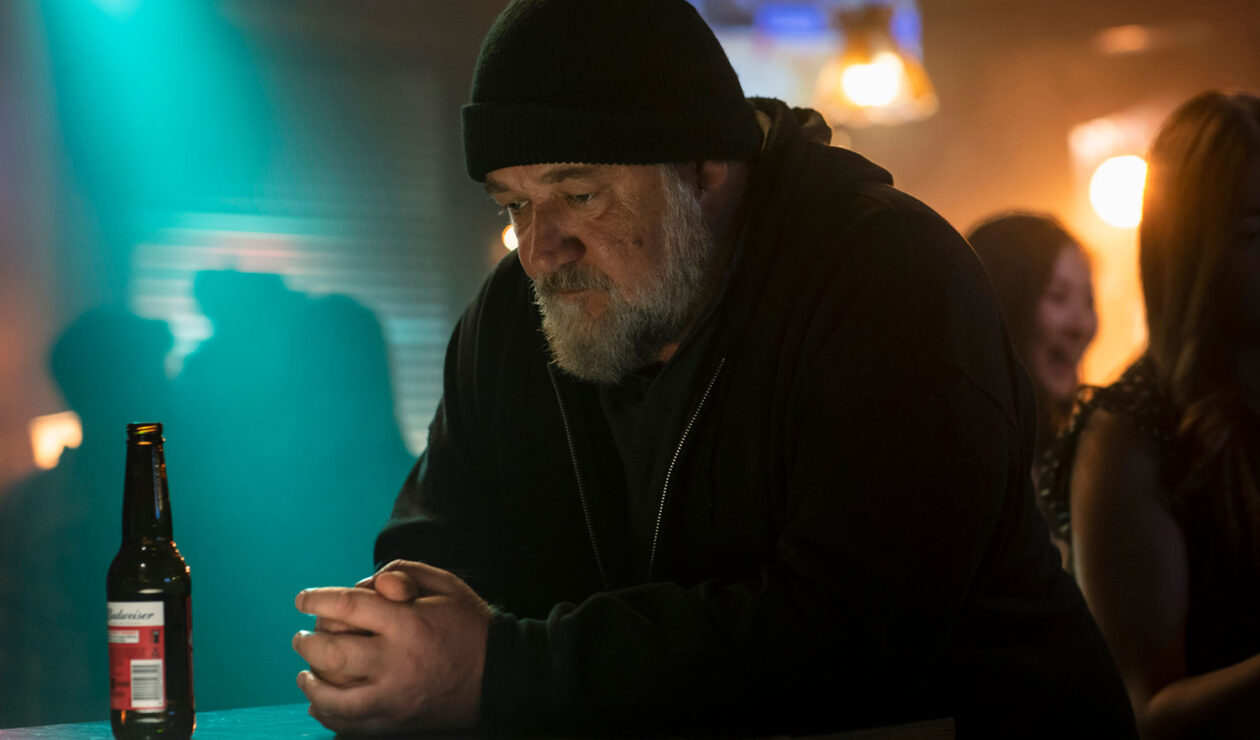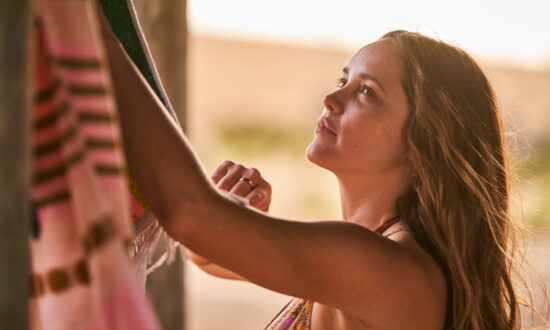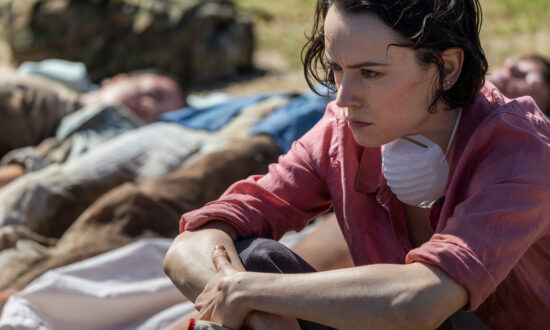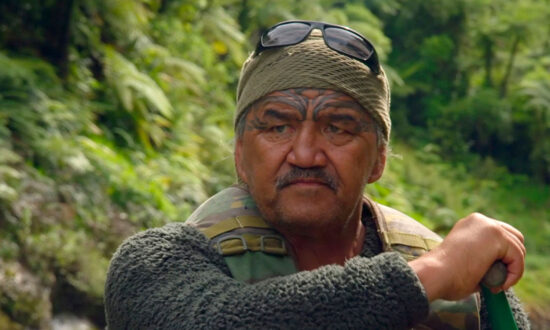Roy Freeman is a retired detective with encroaching Alzheimer’s who tapes useful information, including his name, around the house. It’s a role Russell Crowe, who is barely 60 but has for years looked somewhere between a hungover 45 to a well-earned 70, was made for. You feel for him as he sits on the couch, head bald as an egg, watching old westerns.
Roy was pensioned off after a drunk-driving accident and was married once but we don’t know to whom because he smashed their wedding picture in some forgotten fit of anger. He is also in the care of doctor – young, pretty, it’s that kind of film – who is doing experimental stimulation via electrode implants to restore his neural pathways. He just needs something to keep his mind active.
Enter a woman from an innocence project asking him to have another look at an old murder case, that of wealthy professor and researcher Dr Joseph Wieder (Marton Csokas), who was bashed to death with a baseball bat inside his home. A young black man, Isaac Samuel (Pacharo Mzembe), was convicted of the murder and is about to be executed. The woman needs Roy’s help and time is running out.
It’s a potentially fruitful setup: a man who lost his memory reappraising his own forgotten conduct as one of two investigating detectives in the murder case that put Isaac Samuel away. Based on The Book of Mirrors by EO Chirovici, it puts Crowe’s character in the driver’s seat. “I look at old case files and it’s like new information for me,” he says.
The movie might have worked better if that was it, but we are waylaid by a lurid sub-plot involving Wieder’s former student, lover and general conniver, Laura Baines (Karen Gillan), who draws into her web a young academic, Richard Finn (Harry Greenwood). Finn starts asking the wrong questions, which is a shame because Greenwood, the son of Hugo Weaving, is shaping up as a character actor to watch.
Freeman’s first step is to contact the detective he worked with on the case, his old partner Jimmy Remis (Tommy Flanagan), who is pleased to see him until Freeman starts to rake over the coals of the Wieder case. We are kept guessing whose side Jimmy is on. Why, Freeman asks him, is it only Jimmy’s name on their statement when in all other cases they co-signed?
Nothing is adding up and Freeman is intermittently troubled by flashbacks, including a grim image of the bloodied bat. He tracks down Laura, who was fighting with Wieder over their lucrative memory research – it involved killing off traumatic memories by replacing them – and a new motive starts to emerge.
There is something intriguing about exploring the power of memory in our lives because it provides us with an understanding of who we are. Without it, we could be anyone, and Freeman asks his old partner whether he was a good cop or a bad cop. There is nothing innate that points the way.

Get InReview in your inbox – free each Saturday. Local arts and culture – covered.
Thanks for signing up to the InReview newsletter.
Filmed in Melbourne by first-time director Adam Cooper, this torrid, twisty tale would be nothing without Crowe. He can be miscast but not so here. He is bordering on loveable as the portly crusader, bandages covered by a beanie, who walks with renewed purpose and a bit of a waddle. He is by far the best thing in a messy film packed with scenes worthy of a daytime soap opera, with writing to match. “You may not have a memory, Mr Freeman, but you have quite an imagination,” says Laura, who is one of the worst things in it.
Predictably, Freeman finds out more than he bargained for as everything, not just his jigsaw, falls into place. The problem with sleeping dogs is who they turn on when they wake.
Sleeping Dogs is in cinemas from August 1.
Support local arts journalism
Your support will help us continue the important work of InReview in publishing free professional journalism that celebrates, interrogates and amplifies arts and culture in South Australia.
Donate Here




